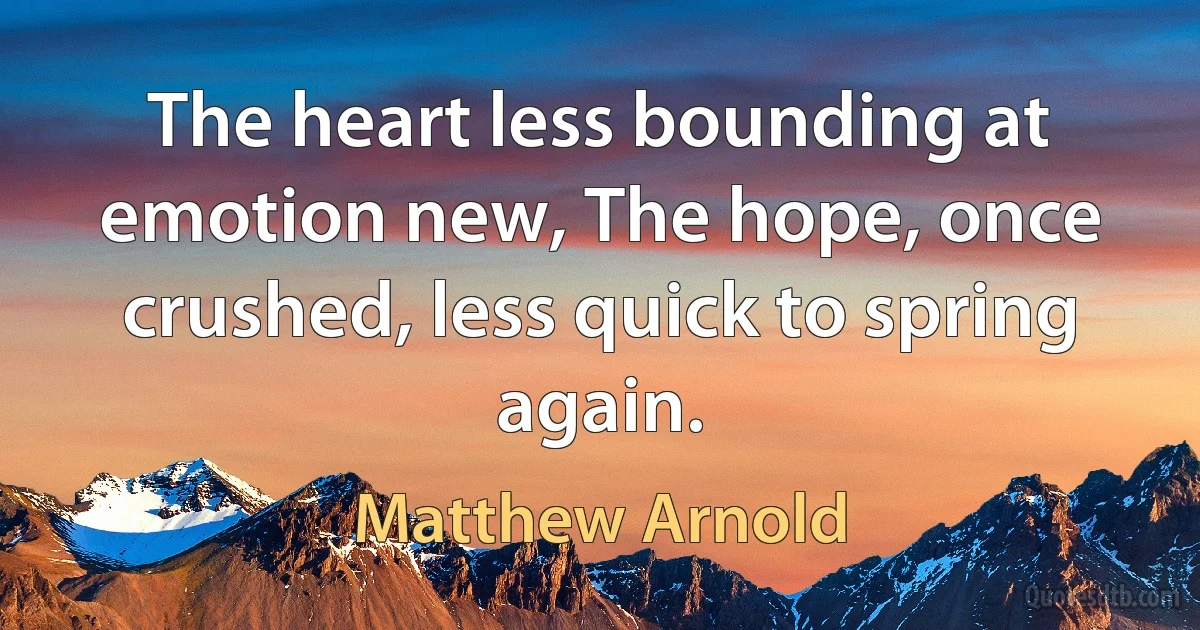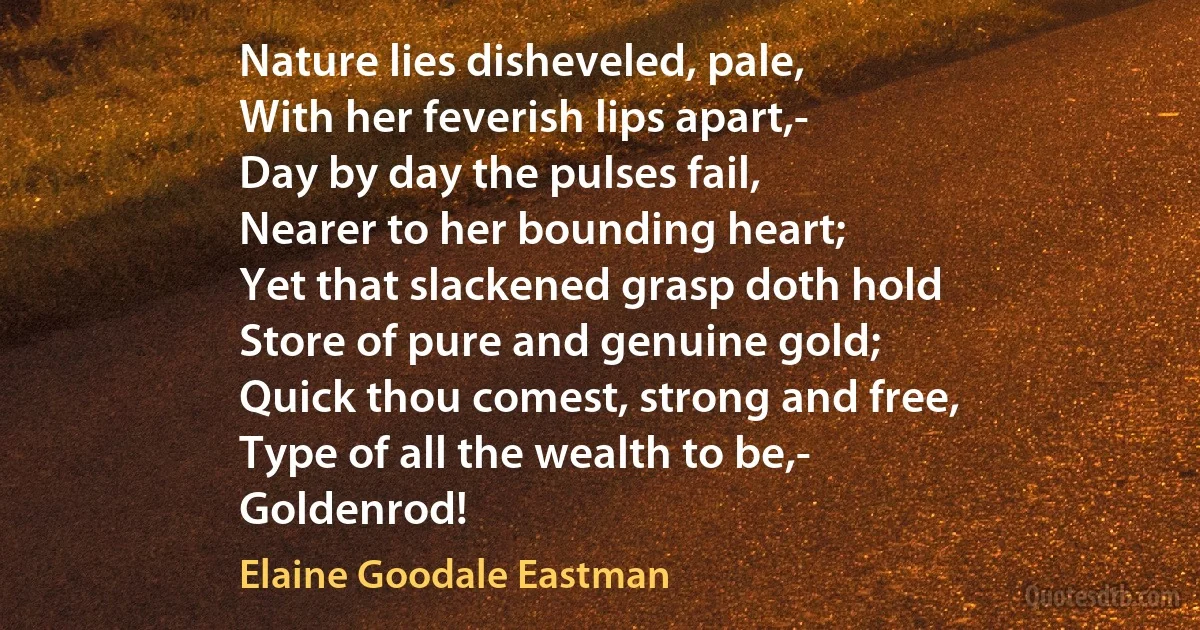Bounding Quotes
We know that the Egyptian priests were aware, not only that the soil beneath the plains of the Nile, but that also the hills bounding the great valley, contained marine shells; and it could hardly have escaped the observation of Eastern philosophers, that some soils were filled with fossil remains, since so many national works were executed on a magnificent scale by oriental monarchs in very remote eras.

Charles Lyell
He is not, as he forcibly remarks, ‘one of those fortunate men who, if they were to dive under one side of a barge stark–naked, would come up on the other with a new suit of clothes on, and a ticket for soup in the waistcoat–pocket:' neither is he one of those, whose spirit has been broken beyond redemption by misfortune and want. He is just one of the careless, good–for–nothing, happy fellows, who float, cork–like, on the surface, for the world to play at hockey with: knocked here, and there, and everywhere: now to the right, then to the left, again up in the air, and anon to the bottom, but always reappearing and bounding with the stream buoyantly and merrily along.

Charles Dickens
To hit in, it's okay; for power, it's not. If you get a line drive in this park, you're in good shape. It's best to hit to right field in this park because of the wall." He explained that balls bounding off and around the right field wall produce more extra base hits. He also said that he doesn't try for the home run. "If I tried hard, I might hit 20 to 25 homers a year. But if you hit for a high average, you will help the ball club more.

Roberto Clemente
But when I'm jumping, it's as if my feelings are going upward to the sky. Really, my urge to be swallowed up by the sky is enough to make my heart quiver. When I'm jumping, I can feel my body parts really well, too-my bounding legs and my clapping hands-and that makes me feel so, so good.

Naoki Higashida
How gladly would I wander through some strange and savage land,
The lasso at my saddle-bow, the rifle in my hand,
A leash of gallant mastiffs bounding by my side,
And, for a friend to love, the noble horse on which I ride!
Alone, alone-yet not alone, for God is with me there,
The tender hand of Providence shall guide me everywhere,
While happy thoughts and holy hopes, as spirits calm and mild,
Shall fan with their sweet wings the hermit-hunter of the wild!

Martin Farquhar Tupper
There is a drowsy state, between sleeping and waking, when you dream more in five minutes with your eyes half open, and yourself half conscious of everything that is passing around you, than you would in five nights with your eyes fast closed, and your senses wrapt in perfect unconsciousness. At such time, a mortal knows just enough of what his mind is doing, to form some glimmering conception of its mighty powers, its bounding from earth and spurning time and space, when freed from the restraint of its corporeal associate.

Charles Dickens
Then re-united to the friends with whom vve took sweet counsel upon earth, we shall recount our toil, only to heighten our ecstasy; and call to mind the toil and the din of war, oniy that, with a more bounding throb and a richer song, we may fee! and celebrate the wonders of redemption.

Henry Melvill
What we should desire creeps silently inside us and replaces what we really desire. ... We take jobs, make compromises, and settle down for the long wait, for the arrival of the future that will bring the reward of happiness we so justly deserve for our sacrifice of the pleasures of the moment. The process is so slow we scarcely notice the substitution of plastic for flesh. We forget how the body sang when it ran free; how it rejoiced in stretching, rolling, skipping, dancing, walking, eating, loving, bounding, leaping, resting.
Gradually the body beings to change to protect itself against the intrusion of joy or sorrow. It armors itself against the threat of playfulness and spontaneity. ... The working body is complete when it is thus armed against those emotions that would threaten the primacy of the work ethic and the pattern of delayed gratification upon which it rests.

Sam Keen
Yes, thou art gone! and round me too the night
In ever-nearing circle weaves her shade.
I see her veil draw soft across the day,
I feel her slowly chilling breath invade
The cheek grown thin, the brown hair sprent with grey;
I feel her finger light
Laid pausefully upon life's headlong train; -
The foot less prompt to meet the morning dew,
The heart less bounding at emotion new,
And hope, once crush'd, less quick to spring again.

Matthew Arnold
I would I were a careless child,
Still dwelling in my Highland cave,
Or roaming through the dusky wild,
Or bounding o'er the dark blue wave;
The cumbrous pomp of Saxon pride,
Accords not with the freeborn soul,
Which loves the mountain's craggy side,
And seeks the rocks where billows roll.
Fortune! take back these cultur'd lands,
Take back this name of splendid sound!
I hate the touch of servile hands,
I hate the slaves that cringe around:
Place me among the rocks I love,
Which sound to Ocean's wildest roar;
I ask but this-again to rove
Through scenes my youth hath known before.
Fain would I fly the haunts of men-
I seek to shun, not hate mankind;
My breast requires the sullen glen,
Whose gloom may suit a darken'd mind.

Lord Byron


